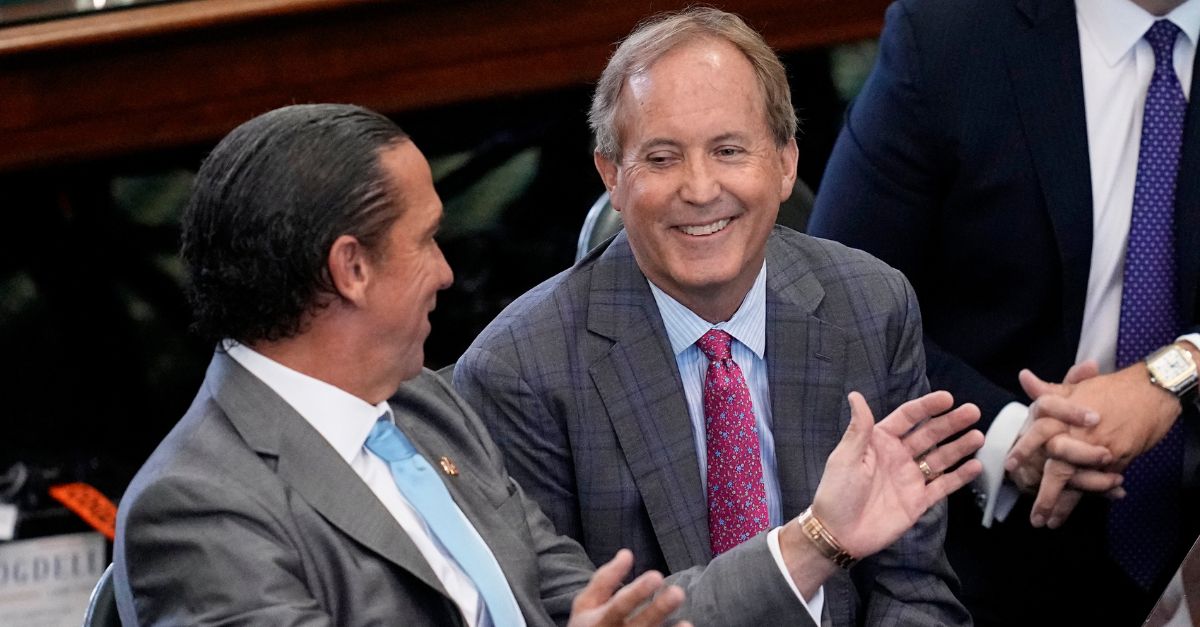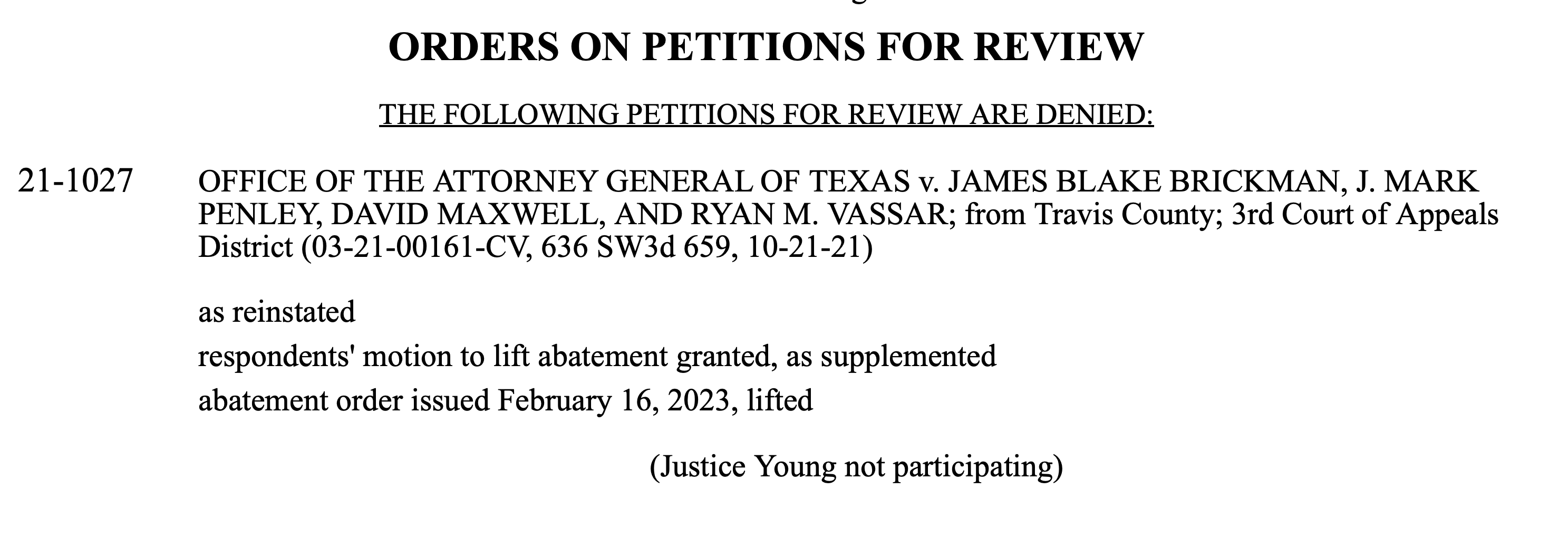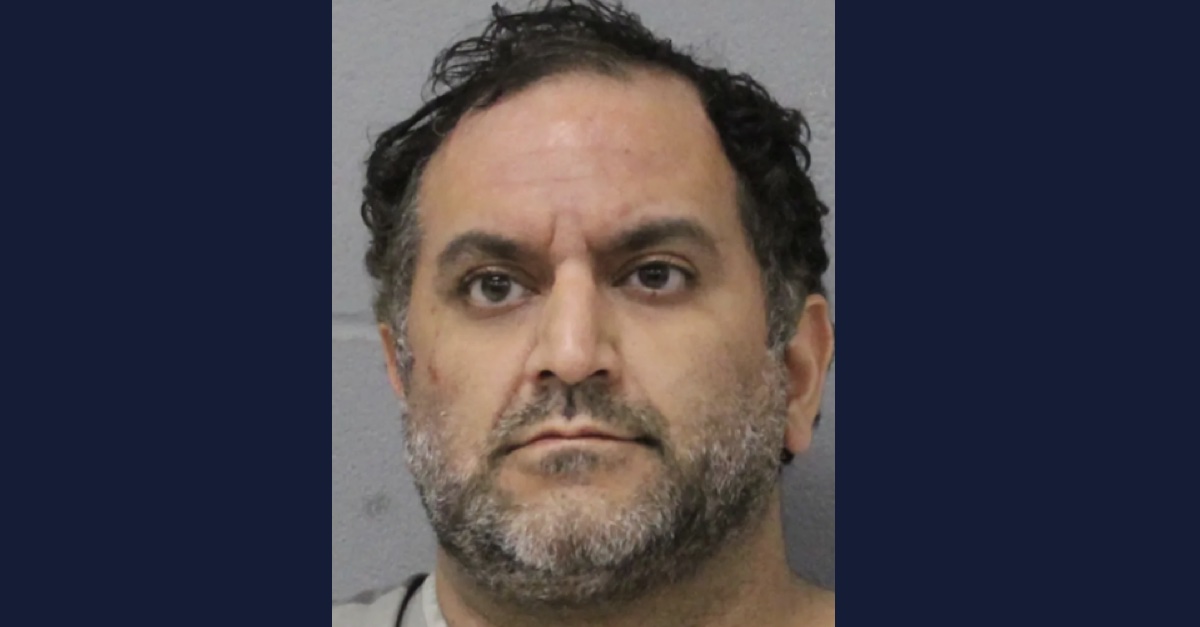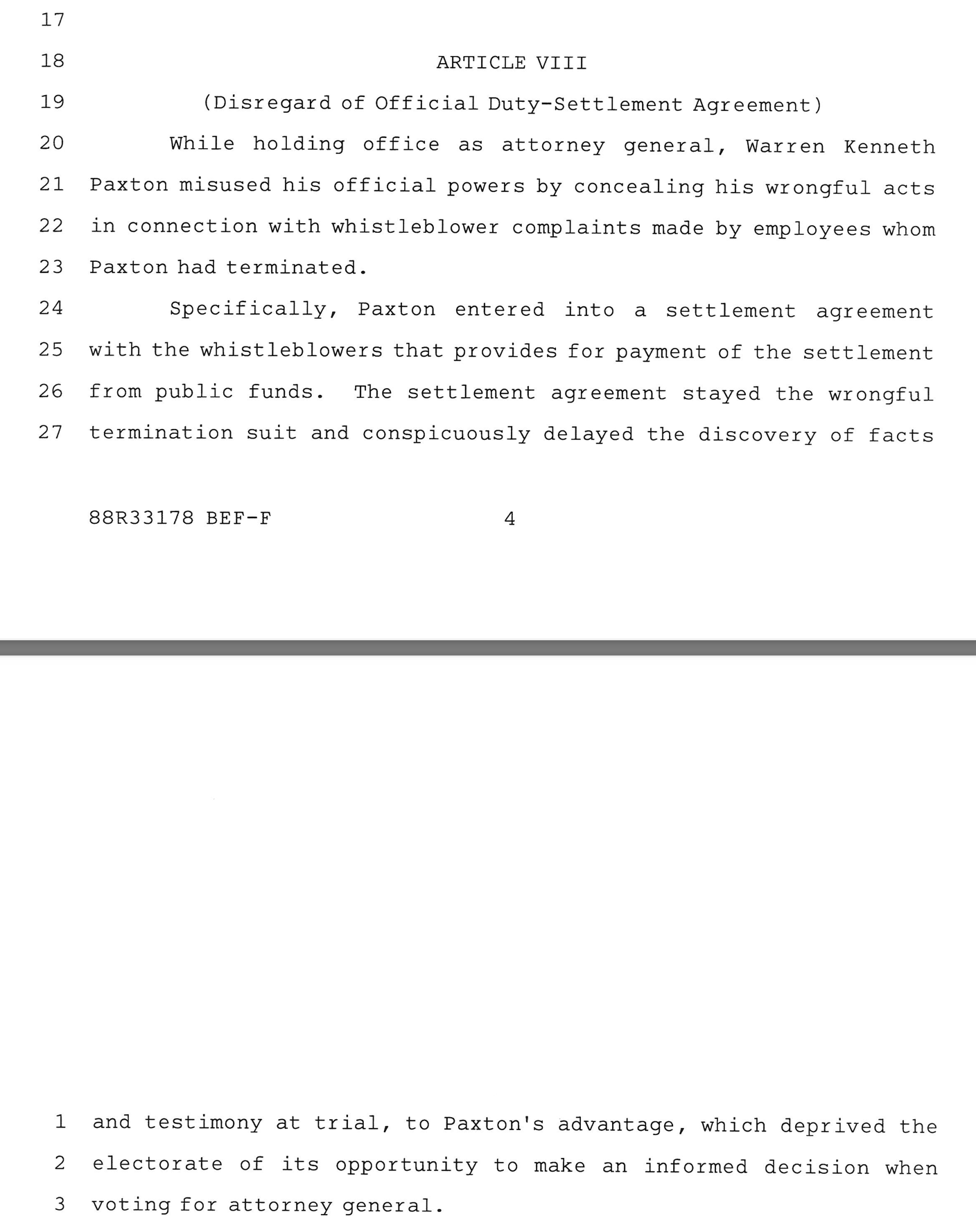
Texas state Attorney General Ken Paxton, right, talks with this attorneys Tony Buzbee, left, before closing arguments in his impeachment trial in the Senate Chamber at the Texas Capitol, Friday, Sept. 15, 2023, in Austin, Texas. (AP Photo/Eric Gay)
Two weeks after Texas Attorney General Ken Paxton (R) was acquitted of more than a dozen articles of impeachment alleging of using his office to engage in misconduct, bribery and corruption, the Texas Supreme Court ruled in favor of fired Paxton staffers-turned-whistleblowers, meaning their lawsuit can move forward in Travis County.

The whistleblowers, former Deputy Attorney General for Criminal Justice Mark Penley, former Deputy Attorney General for Policy and Strategy Initiatives Blake Brickman, former Deputy Attorney General for Legal Counsel Ryan Vassar, and David Maxwell, the former director of the Office of Attorney General’s (OAG) enforcement division, filed their wrongful termination lawsuit against Paxton in November 2020.
In the suit, plaintiffs said that they had a “good faith belief” that Paxton was “violating federal and/or state law, including prohibitions relating to improper influence, abuse of office, bribery, and other potential criminal offenses.” The whistleblowers specifically alleged improper influence in the case of Natin “Nate” Paul, an Austin real estate investor who donated to Paxton’s 2018 re-election campaign and who was federally indicted in June.
“Paxton’s abuse of the OAG to benefit Paul began in or around November 2019. But as 2020 progressed, Paxton’s efforts on Paul’s behalf became increasingly reckless, bold, and apparent to Plaintiffs,” the complaint said. “During the Spring and Summer of 2020, Paxton began taking more interest in legal matters involving Nate Paul and applying more pressure on the Plaintiffs and the other Whistleblowers to use the personnel, legal authority and other resources of the OAG to advance the legal and personal interests of Nate Paul and his business activities.”
Paul has pleaded not guilty and will, at the earliest, face trial in late July 2024.

Natin “Nate” Paul (Austin Police Department)
In January 2022, Paxton filed a petition for review with the Texas Supreme Court arguing the fired political appointees had merely “disagreed with the Attorney General regarding policy decisions” and that the attorney general’s office has “sovereign immunity and the right to fire its employees […] at will.”
By January 2023, the court issued an order of abatement upon the joint agreement of the parties, putting the petition for review on hold until at least April 3, 2023 “to enable the parties to finalize and fund a settlement agreement.”
In March, the whistleblowers filed a motion to lift the pause on the case, leading to back-and-forth responses and replies over the ensuing weeks.
Merit briefs followed from Paxton and the whistleblowers in July and September.
In the July filing, Paxton reasserted his “sovereign immunity” argument, questioning whether the 3rd Court of Appeals was correct to determine that the Texas Whistleblower Act really did provide a “limited waiver” of the asserted sovereign immunity.
As recently as Sept. 15, the whistleblowers told the Texas Supreme Court, the highest court in the Lone Star State for civil cases, that there was no error in the appellate court’s decision:
Accepting OAG’s arguments would require the Court to hold that the Act grants every elected official in Texas—the thousands of apex officers who manage our government—carte blanche to retaliate against public employees who in good faith report illegal conduct committed by the officials or at their direction. And the Court would also have to conclude that the Legislature granted this license for corruption to all elected officials not by express statement in the statute, but by subtle implication in the definition of “public employee.”
In their statement of facts, the whistleblowers accused Paxton of citing irrelevant “facts” to support his argument.
“Because OAG is appealing from the denial of its motion to dismiss under Rule 91a, the only relevant facts are those alleged in Respondents’ Second Amended Petition and its attachments,” the filing said. “AG’s resort to ‘facts’ outside of the Petition is improper, and its distortion of Respondents’ allegations portends the weakness of its case.”
The whistleblowers also disputed the characterization that they had “merely ‘developed concerns”” rooted in policy differences with Paxton.
Read Related Also: Wyndham Vale stabbing: Tragedy as teen, 18, is killed during a street fight between two groups in Melbourne
“Over time, ‘concerns’ developed into a good-faith belief that OAG was breaking the law as Respondents realized that the otherwise inexplicable positions OAG took on multiple issues were, in every instance, solely for the benefit of Paxton’s personal benefactor, Nate Paul,” the filing continued.
On Friday, the Texas Supreme Court granted the whistleblowers’ motion to lift abatement, allowing the case to continue in a Travis County court.
Blake Brickman, the lead plaintiff in the whistleblowers’ suit, reportedly reacted to the Friday ruling by saying Paxton can’t hide from questions like he did in his impeachment trial.
“He will not answer questions. He refused to testify in his trial, and that’s why we’re going to put him under oath and depose him in this case,” Brickman told local ABC affiliate KXAN.
Paxton’s office previously reached a $3.3 million dollar settlement with the fired employees, which formed the basis of one of the articles of impeachment Paxton faced — specifically article VIII.

“We are not going away,” Brickman said Monday, saying the case “has always been about more than money.”
“It’s about truth. It’s about justice,” he added.
A supplemental brief in support of the motion to lift abatement was filed the same day as Brickman’s Monday press conference. The document said that Paxton hasn’t abided by the terms of the “Mediated Settlement Agreement” (MSA).
“Now, more than five months after the abatement order expired by its own terms, those events have crystallized the reality that the abatement is not serving its purpose and should be lifted,” the brief said.
The whistleblowers said that Paxton’s office has not paid out “a total of $3,300,000” and seemingly won’t, as the Texas Legislature “has adjourned without funding approval.”
“That has not happened and evidently will not happen,” the supplemental brief said of the payout. Nor did Paxton apologize for calling the whistleblowers “rogue employees.”
“The MSA required the parties to create a final settlement agreement with a formal recital stating ‘WHEREAS, Attorney General Ken Paxton accepts that plaintiffs acted in a manner that they thought was right and apologizes for referring to them as ‘rogue employees,’” the filing said. “That has not happened, and attorneys for the Attorney General took the opposite position in the impeachment trial.”
The whistleblowers said the Texas Supreme Court should not allow an “unprecedented” and “perpetual” abatement to carry on any longer, since the settlement negotiations have “proven fruitless.”
Days later, the high court returned the case to its “active docket,” as requested.
The impeachment proceeding fallout, the whistleblower lawsuit, and Nate Paul’s criminal case are not the only matters Paxton has to contend with.
In 2015, Paxton was indicted on two counts of securities fraud, but that criminal case has gone virtually nowhere in the years since. The Texas Tribune reported that this may change on Oct. 6, when a hearing is scheduled to handle motions and set a trial date — possibly close to February 2024.
Have a tip we should know? [email protected]







